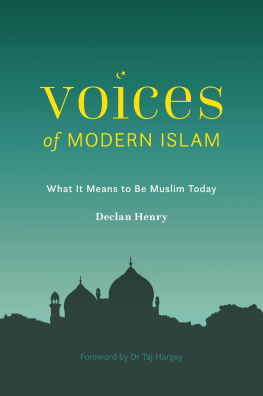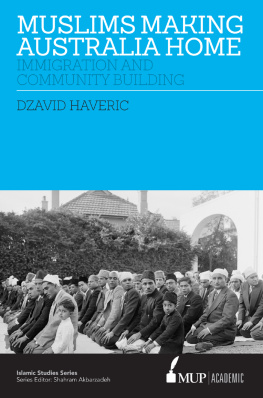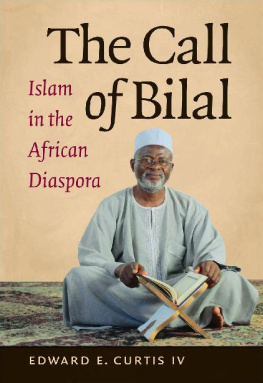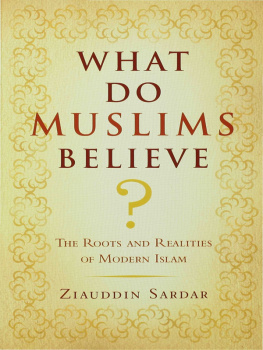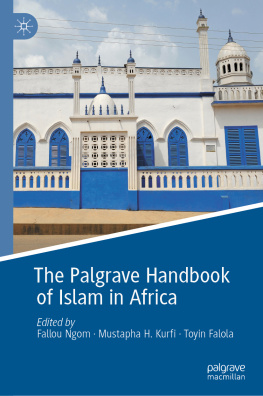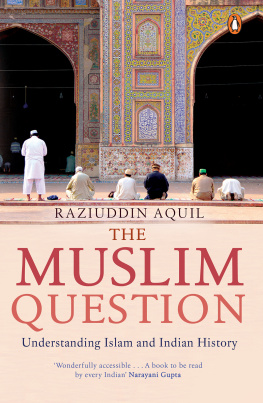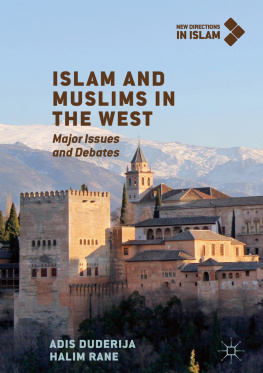
Advance Praise for Remaking Islam in African Portugal
Resonant throughout Remaking Islam in African Portugal, the ethnographers deeply informed voice is the one we ourselves need to hear, as we, too, face unprecedented, once hardly imaginable predicaments of closeness and distancing in our troubled times. Richard Werbner, author of Divinations Grasp: African Encounters with the Almost Said
The gripping narratives and nuanced interpretation found in Michelle Johnsons Remaking Islam in African Portugal demonstrates the considerable intellectual fruits of taking a slower more narratively contoured approach to ethnographic research and writing.... Given the depth of its analytical insights and the grace of its presentation, this is a work that will be read, savored, and debated for many years to come. Paul Stoller, author of Yayas Story: The Quest for Well Being in the World
Written with great sensitivity and reflexivity, Remaking Islam in African Portugal... is a refreshing welcome addition to scholarly conversations on African diasporas and struggles over belonging. Pamela Feldman-Savelsberg, Carleton College
This insightful ethnographic narrative about the religious challenges of Muslim women from Guinea-Bissau in Lisbon deals with religion, gender and generations in a globalised world. While rooted in profound insights about the homeland, it spells out how Guinean women renegotiate ethnicity and religious identity. Jnna Einarsdttir, University of Iceland
REMAKING ISLAM IN
AFRICAN PORTUGAL
FRAMING THE GLOBAL SERIES
The Framing the Global project, an initiative of Indiana University Press and
the Indiana University Center for the Study of Global Change,
is funded by the Andrew W. Mellon Foundation.
Hilary E. Kahn and Deborah Piston-Hatlen, series editors
REMAKING ISLAM IN
AFRICAN PORTUGAL
Lisbon Mecca Bissau
MICHELLE C. JOHNSON
INDIANA UNIVERSITY PRESS
This book is a publication of
Indiana University Press
Office of Scholarly Publishing
Herman B. Wells Library 350
1320 East 10th Street
Bloomington, Indiana 47405 USA
iupress.indiana.edu
2020 by Michelle C. Johnson
All rights reserved
No part of this book may be reproduced or utilized in any form or by any means, electronic or mechanical, including photocopying and recording, or by any information storage and retrieval system, without permission in writing from the publisher. The paper used in this publication meets the minimum requirements of the American National Standard for Information SciencesPermanence of Paper for Printed Library Materials, ANSI Z39.481992.
Manufactured in the United States of America
Library of Congress Cataloging-in-Publication Data
Names: Johnson, Michelle C., author.
Title: Remaking Islam in African Portugal : Lisbon-Mecca-Bissau / Michelle C. Johnson.
Description: Bloomington : Indiana University Press, 2020. | Series: Framing the global | Includes bibliographical references and index.
Identifiers: LCCN 2020000490 (print) | LCCN 2020000491 (ebook) | ISBN 9780253049766 (hardback) | ISBN 9780253049773 (paperback) | ISBN 9780253049780 (ebook)
Subjects: LCSH: MuslimsPortugal. | IslamPortugal. | MuslimsGuinea-Bissau. | IslamGuinea-Bissau. | Muslim womenPortugal. | Muslim womenGuinea-Bissau. | Guinea-BissauRelationsPortugal. | PortugalRelationsGuinea-Bissau.
Classification: LCC BP65.P8 J64 2020 (print) | LCC BP65.P8 (ebook) | DDC 297.09469dc23
LC record available at https://lccn.loc.gov/2020000490
LC ebook record available at https://lccn.loc.gov/2020000491
1 2 3 4 5 25 24 23 22 21 20
To Badim Clubo members, past, present, and future
CONTENTS
THIS BOOK TOOK ME A decade to finish, and so many people have contributed to it in multiple ways that it is nearly impossible to remember and acknowledge them all. Since I work at a liberal arts university where I spend much of my time working with students, it feels right to begin with my own teachers. When I was an undergraduate at the University of Washington, Clarke Speed, the late Edgar Bud Winans, and Simon Ottenberg introduced me to anthropology and African studies, gave me an extraordinary amount of time and attention, and encouraged me to go to graduate school. When I told Clarke that I wanted to become a professor of anthropology, he helped me believe that it was possible. As a graduate student at the University of Illinois, I had the privilege of working with Alma Gottlieb, an outstanding teacher, scholar, and mentor. It took reading only one of her books to know that I wanted to work with her. Her influence on my thinking and writing is still evident so many years later, on every page of this book, and I am thankful for the wisdom, advice, and friendship that she and Philip Graham have offered over the years. I also benefited greatly from my other teachers at Illinois, Ed Bruner, Alejandro Lugo, and especially Valerie Hoffman and Mahir aul, who taught me what I needed to know about Islam in and beyond Africa.
Scholars of lusophone Africa are a small, tight-knit group, and those who work in Guinea-Bissau have been an invaluable sounding board. Eric Gable was the first of this group whom I met, and he gave me the advice, wisdom, and support that I needed to start my research in Guinea-Bissau. I have benefited greatly from his friendship and careful reading of my work since then. This book has also been enriched greatly by the work of and scholarly dialogue with Maria Abranches, Lorenzo Bordonaro, Clara Carvalho, Joanna Davidson, Jnna Einarsdttir, Joshua Forrest, Brandon Lundy, Henrik Vigh, and Walter Hawthorne.
My earliest fieldwork in Guinea-Bissau and Portugal, which I conducted in the late 1990s and early 2000s in graduate school, provided the foundation for the future research out of which this book emerged. Research in Guinea-Bissau was funded by a Social Science Research Council International Predissertation Fellowship. While this preliminary fieldwork was intended to prepare me for an additional year of research, Guinea-Bissaus 1998 civil war prevented me from returning until 2003. That initial year was a gift and became more important than I ever imagined. I was affiliated with the Instituto Nacional de Estudos e Pesquisa (INEP) while in Bissau and am grateful for the support and mentorship of Peter Mendy, INEPs director at the time.
Fieldwork in Portugal was supported by a Social Science Research Council International Dissertation Research Fellowship, a Department of Education Fulbright-Hays Fellowship, and a Marianne A. Ferber Graduate Scholarship in Womens Studies from the University of Illinois at Urbana-Champaign. As these fellowships were intended for research in Guinea-Bissau, I will never forget the granting officers flexibility and willingness to work with me as I scrambled to move my research to Portugal. JoAnn DAlisera encouraged me to work in Lisbon, and she opened my eyes to the importance of transnational research and assured me that this radical move at the time would eventually be fruitful. I am eternally grateful for her confidence, support, and friendship over the years. In Lisbon, Paula Zagallo e Mello and Rita Bacelar from the Luso-American Educational Commission and Maria Joo Santos Silva from the US Embassy provided the logistical support that made moving my research from Bissau to Lisbon possible.


